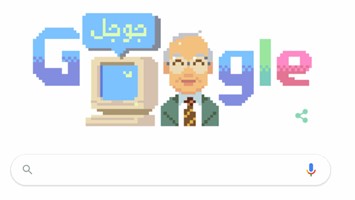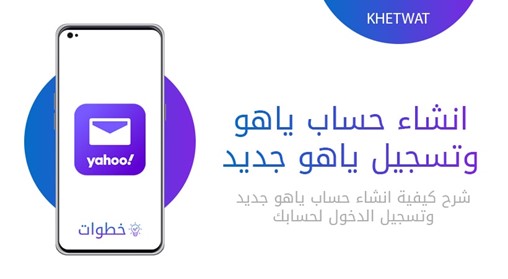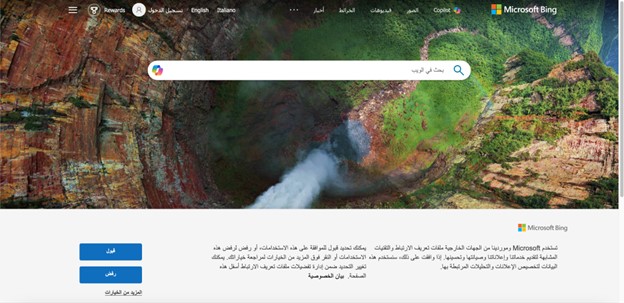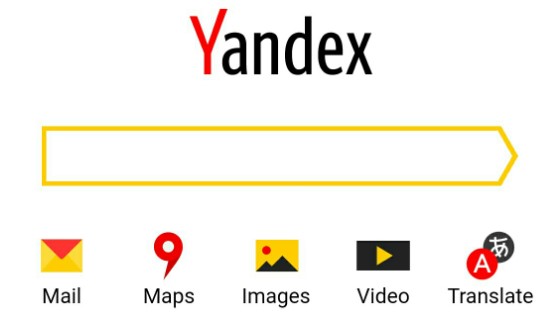When seeking to target any region of the world online it is a good idea to have an understanding of which regional search engines you need to target. This is no different when targeting countries in the Middle East. On a whole, the region has an internet penetration rate of over 65%, whereas countries in the Gulf tend to have much higher rates averaging around 92%. These rates are growing each year, as countries continue taking strides in expanding network infrastructure and access.
Unlike many other regions in the world the Middle East does not have an alternative to Google that dominates the region. Despite this there are some important observations to make about Middle East Search Engines that we will go into more detail about here.
Who are the top search players in the Middle East?

As mentioned previously Google maintains the lion’s share of the market. For example in Saudi Arabia Google has nearly 96% of the search market whereas Bing, YANDEX, and Yahoo make up just over 4% of the market. In Egypt, Google has even more of a market share at over 97%, with the same other three search engines making up the rest. These same trends are reflected in the search engine markets of all the other countries in the MENA region, further highlighting Google’s influence in the region. IstiZada created a complete guide to Google Arabic here.
As of 2024, most of the countries in the Middle East and North Africa region have country-specific Google domains.
Here is a list of Google search engines by Arabic Speaking country.
Algeria – www.google.dz
Bahrain – www.google.com.bh
Egypt – www.google.com.eg
Iraq – Google.com.iq
Kuwait – www.google.com.kw
Lebanon – www.google.com.lb
Libya – www.google.com.ly
Morocco – www.google.co.ma
Oman – www.google.com.om
Palestine – www.google.ps
Qatar – www.google.com.qa
Saudi Arabia – www.google.com.sa
Syria – N/A
Tunisia – www.google.tn
United Arab Emirates – www.google.ae
Yemen – N/A
Despite Google’s clear domination in the region there are some important notes to make about other search engines.
Yahoo
Yahoo has had a significant market presence in the region for quite some time. In 2009 Yahoo acquired Maktoob, which was popular in the Middle East for news (Yahoo! Maktoob News), sports news (Yahoo! Maktoob Sport), and its blogging platform (Yahoo! Maktoob Blog). At the end of 2023, Yahoo shut down the Maktoob platform along with its affiliated pages. Now, Yahoo only offers an Arabic extension for its email platform.

Bing
Microsoft has had a strong reputation in the region across a variety of industries for a long time. Though Bing isn’t popular as a search engine, Hotmail, which is owned by Microsoft, has been and remains very popular in the region. Many Arabs have clung to old Hotmail accounts despite the availability of superior email services like Gmail.

Yandex
YANDEX is a multinational technology platform originating in Russia in 2000. Its search engine services are one of the other popular choices in the Middle East, though like Yahoo! and Bing, the amount of traffic it receives compared to Google is marginal. Additionally, YANDEX does not have an Arabic-language extension, so that contributes to why it is much less popular than Google in the Middle East.

Strictly Arabic Search Engines
There are three transliteration search engines for Arabic speakers that were all launched about 5 or 6 years ago when the Arabic language support on many devices was poor. Arab searchers type a query into the engine in Latin letters, which are then transliterated into Arabic. Most of these transliteration search engines are in decline as most devices and platforms have much better Arabic support than they did half a decade ago.
Below are the three most popular transliteration search engines in the region.
These search engines allow Arabic-speaking users to type Arabic search entries in Latin text. This use of Arabic transliteration is common in many Arab countries such as Morocco, Egypt, and Lebanon, especially for informal purposes.
Also, if you’d like to use an Arabic version of Google that isn’t specific to a country or region you can use the following link:
Failed Search Engines in the MENA Region
Additionally, there have been several failed attempts at Arabic search engines that include names such as Araby.com, Eb7ath, and Marweb. There will likely be more attempts as well, all claiming to be the “first Arabic only search engine.” However, for a new Arabic search engine to succeed it will have to offer something that Google can’t and that doesn’t appear to be likely any time soon. Google is investing heavily in Arabic search and it even has started investing in encouraging others to produce more Arabic content online.
Jordan Boshers
Jordan Boshers is the Chief Digital Strategist at IstiZada, a digital agency that helps companies market to Arabs. He has 12+ years of experience running successful digital marketing campaigns in the Arab world. His insights into Arabic SEO helped him grow previously unknown websites to dominate Arabic niches on Google including growing one site from 0 to more than 2.5 million users monthly. Jordan has consulted for hundreds of companies including helping corporations like Amazon, Berlitz, and Exxon Mobil with their Arabic digital marketing. Learn more here or on LinkedIn.
View all posts by Jordan Boshers


